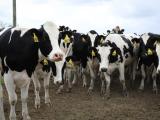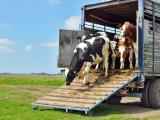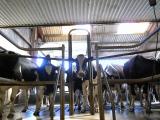Aug 10, 2012
Indonesia confirms fatal H5N1 case
Indonesia's Ministry of Health confirmed H5N1 avian flu in the death of a 37-year-old man, the World Health Organization (WHO) reported today, bringing to eight the number of H5N1 cases confirmed in the country this year. All eight cases have been fatal. The man, from Yogyakarta province, experienced a fever on Jul 24, was hospitalized on Jul 27, and died Jul 30. He kept four caged birds as pets in his home and lived 50 meters from a poultry slaughterhouse and near a farm, the report said, without specifying whether he had contact with sick or dead birds. Since 2005 Indonesia has confirmed 191 H5N1 cases, including 159 deaths, for a case-fatality rate (CFR) of 83%. The country leads the world in both cases and fatalities. Today's confirmation brings the global H5N1 total to 608 cases, including 359 deaths, for a 59% CFR. The last WHO-confirmed H5N1 case, also in Indonesia, was on Jul 6.
Aug 10 WHO update
Aug 10 WHO global H5N1 case count
Uganda reports 23 suspected and confirmed Ebola infections
Uganda's health ministry is reporting 23 probable and confirmed Ebola cases, including 10 that have been confirmed by the Uganda Virus Research in Entebbe, the WHO said today. The most recent confirmed case was detected in a patient in the Kagadi isolation facility on Aug 4. The number of suspected cases is lower than previous reports, and the number of confirmed cases is the same as reported by the WHO African Region office on Aug 8. The number of deaths had held steady at 16. So far all of the samples from patients outside of Kibaale district have tested negative. Patients who had suspected infections but tested negative have been treated and discharged after recovery, the WHO said. Health authorities are following up on case contacts for 21 days, and so far monitoring is complete for 190 of 275 patients. Active surveillance is still under way in Kibaale district, where the outbreak is centered. The WHO said awareness campaigns are being conducted throughout the country, and bordering countries have enhanced their Ebola surveillance.
Aug 10 WHO statement
West Nile battle prompts Dallas County public health emergency
Dallas County officials yesterday declared a public health emergency to enlist more resources from the state in the battle against West Nile virus (WNV), the Dallas Morning News reported yesterday. Dallas County has reported a surge of WNV infections, along with nine deaths, and surrounding counties have also noted increased cases. Denton, Ellis, and Tarrant counties have each reported a death from the disease. Dallas County also said it will seek regional cooperation to help curb the spread of WNV disease. Zachary Thompson, the county's health and human services director, told the Morning News that mosquito spraying operations are scaling up to address the rising number of illnesses, and the emergency declaration will make it easier for the county to get trucks, pesticides, and other resources from the state. County, state, and federal officials are meeting today to discuss other response options. The Dallas County Medical Society has suggested aerial spraying, but so far the county has not taken that step. However, County Judge Clay Jenkins, who directs Dallas County's Homeland Security and Emergency Management department, said all options are under consideration.
Aug 9 Dallas Morning News story
Colorado ranch quarantined after cow killed by anthrax
A northeastern Colorado ranch is being quarantined after one of about 50 cows that recently died there was confirmed to have had anthrax, the Colorado Department of Agriculture (CDA) reported this week in a news release. Seven people, including a veterinarian and ranch workers who had direct contact with the cattle, will be treated with antibiotics, health officials said, according to the Associated Press (AP). "Anthrax is not spread from person to person and exposure is limited only to those who had contact with the affected cattle or the immediate area," Tony Cappello, PhD, of the Northeast Colorado Health Department, said in the CDA release. No cattle left the ranch or entered the food chain, according to the release. The ranch houses about 500 additional cows as well as an unknown number of calves, said state veterinarian Keith Roehr, DVM, adding that the case is Colorado's first in 31 years.
Aug 8 CDA news release
Canadian E coli O157 vaccine for cattle gets UK approval
A Canadian-made vaccine for Escherichia coli O157:H7 in cattle has been approved for use in the United Kingdom under a Special Treatment Certificate (STC), making it the first such vaccine available in the UK, according to the vaccine's manufacturer, Bioniche Life Sciences of Belleville, Ont. An STC permits the use of an appropriate veterinary drug from another country when no approved remedy is available in the UK, the company said in a press release. The STC was issued by the Veterinary Medicines Directorate in the UK Department for the Environment, Food and Rural Affairs. "On-farm vaccination is a logical preventative measure to reduce the risk of human exposure to E coli O157," said Dr. Chris Low, director of One Health at the University of Edinburgh's Royal School of Veterinary Studies, in the company release. Bioniche said it would pursue formal regulatory approval for its vaccine in Europe. The vaccine was approved by Canada in 2008 but has not been approved in the United States, according to a report in Food Safety News. In 2009, the US Department of Agriculture issued a conditional license for an E coli O157 vaccine made by Epitopix of Willmar, Minn. In June 2010, Pfizer Animal Health signed a global licensing agreement with Epitopix to expand access to the vaccine, and the companies said they would conduct more potency and efficacy studies to gain full approval for it.
Aug 7 Bioniche press release
Aug 10 Food Safety News story
March 2009 CIDRAP News story on Epitopix vaccine
June 2010 Pfizer press release




















